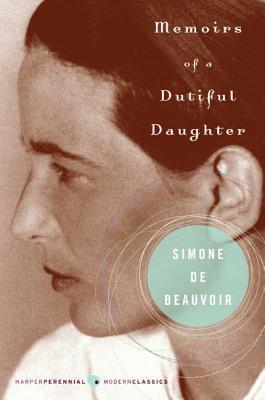
Prime of Life
Book Description
Life is a relentless tide that sweeps away youth, yet in the depths of aging lies an uncharted territory filled with passion, intellectual discovery, and fierce independence. "Prime of Life" captures the tumultuous journey of a woman confronting the inevitable changes brought on by time. As relationships strain and societal expectations weigh heavily, the protagonist battles the dual forces of despair and defiance. With each page turn, the tension rises, exposing profound truths about existence and freedom. Can one truly embrace the richness of life while grappling with its fleeting nature?
Quick Book Summary
"Prime of Life" by Simone de Beauvoir is a candid, deeply philosophical memoir chronicling her life from adolescence into adulthood, especially during her significant years with Jean-Paul Sartre and within the Parisian intellectual community. Through vivid narrative and thoughtful introspection, de Beauvoir reflects on her intellectual awakening, the forging of her personal and philosophical identity, and the intense relationships that shaped her. The book is not only a personal account but also a meditation on the passage of time, the experience of aging, and the eternal tension between existential freedom and social expectation. De Beauvoir delves into the joys and sorrows of her prime years—moments of vulnerability and triumph, intellectual discovery, and determined independence. Her story is one of wrestling with the limitations of circumstance while striving for authentic existence, and ultimately, finding profound meaning in life's impermanence.
Summary of Key Ideas
Table of Contents
The Search for Intellectual and Personal Freedom
Simone de Beauvoir’s "Prime of Life" offers an exhilarating account of her journey into adulthood, tracing the evolution of her intellectual worldview and her passionate pursuit of existential freedom. The memoir picks up from her early philosophical awakenings and explores her growing involvement with other young thinkers, particularly her lifelong companion, Jean-Paul Sartre. De Beauvoir immerses herself in the vibrant Parisian intellectual scene, reflecting on her role as both participant and observer. These formative years are marked by a relentless search for meaning, a desire to test boundaries, and the discovery of her own voice as a thinker and writer.
Navigating Intense Relationships and Emotional Complexity
At the core of the narrative is her profound partnership with Sartre, a relationship that both supports and challenges her independence. She provides an unvarnished look at the emotional complexity of their bond, addressing moments of intimacy, jealousy, and intellectual debate. Through other friendships and romantic entanglements, de Beauvoir explores the tangled intersections of love, freedom, and selfhood. This section highlights the fragile balance between emotional needs and the quest for autonomy, illustrating the difficult choices women face in structuring their relationships.
Confronting Social Expectations and Gender Roles
De Beauvoir grapples openly with the weight of societal expectations, especially those placed on women. Her defiance of conventional roles is a central theme; she consciously resists the path of domesticity and marriage. Instead, she insists on intellectual and creative work as a means of fulfillment. De Beauvoir’s critique of gender norms is not only theoretical—her life becomes its own argument against the limitations traditionally imposed on women. This ongoing tension between personal freedom and external constraint is vividly rendered through her honest depictions of struggle and resistance.
The Passage of Time and the Experience of Aging
The memoir also meditates on the passage of time and the experience of aging, documenting both the exhilaration and anxiety that come with confronting life’s impermanence. De Beauvoir shares her fears of mediocrity and failure as well as her determination to find meaning in her finite existence. Her reflections on mortality are inseparable from her sense of urgency and the pursuit of authenticity. Rather than succumbing to despair, she embraces creativity and intellectual labor as powerful responses to the fleeting nature of life.
Pursuing Meaning through Creativity and Work
Ultimately, "Prime of Life" emerges as a celebration of passionate living—a testament to the possibility of forging an authentic self in the face of external pressures and internal doubts. De Beauvoir’s narrative invites readers to reflect on their own struggles with independence, time, and meaning. Her journey illustrates that while youth may be lost, the richness of experience and the depth of understanding gained in one’s prime years can offer their own unique forms of freedom and fulfillment.
Download This Summary
Get a free PDF of this summary instantly — no email required.





